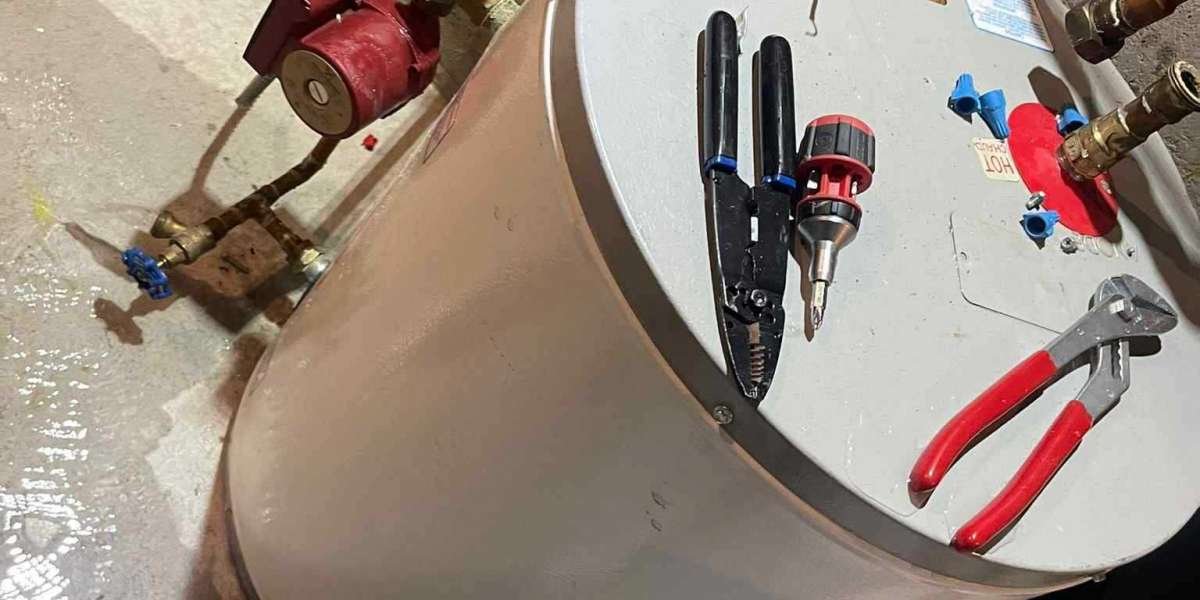Water Heater Repair
When your water heater stops working, it can disrupt daily routines, leaving you with cold showers and other inconveniences. Effective water heater repair ensures a steady supply of hot water, improves energy efficiency, and extends the appliance’s life. Understanding the basics of water heater repair helps you keep your water heater running smoothly.
Identifying Common Water Heater Issues
Water heaters can experience several issues over time. Knowing the common problems and how to resolve them can make troubleshooting and repair easier.
No Hot Water
One of the most common issues is a lack of hot water. This problem can be due to a broken heating element, thermostat issues, or an incorrect setting on the thermostat. Electric water heaters may need new heating elements, while gas heaters may require adjustments to the pilot light or thermocouple.
Leaking Water Heater
Leaks are serious issues that require immediate attention to prevent water damage. Leaks can occur due to loose connections, a broken valve, or corrosion in the tank. Tightening the connections or replacing the valve may resolve minor leaks, but corrosion generally means the tank needs replacement.
Strange Noises
Sediment buildup in the tank can cause popping or rumbling noises as the water heater operates. These sounds are signs that the heater needs a thorough cleaning to remove sediment and improve efficiency.
Inconsistent Water Temperature
If your water heater doesn’t maintain a consistent temperature, it may be due to a faulty thermostat, sediment buildup, or issues with the heating element. Checking and adjusting the thermostat or cleaning out sediment may restore consistent temperature control.
When to Consider Professional Water Heater Repair Services
Some water heater issues require more than basic troubleshooting and are best handled by professionals. Here’s when to call an expert.
Persistent Leaks
While minor leaks may be fixed by tightening connections or replacing small parts, persistent or severe leaks indicate that the tank is compromised. A professional plumber can assess the situation and recommend the appropriate repair or replacement.
Rusty Water or Discoloration
Rusty or discolored water often signals corrosion inside the tank. When left unaddressed, corrosion can lead to leaks or even tank failure. Professionals can check for rust and recommend either a tank cleaning or, in some cases, replacement.
Water Heater Doesn’t Stay Lit
If you have a gas water heater and the pilot light keeps going out, it may be an issue with the thermocouple or gas valve. Both of these components require professional handling to ensure safe and effective repair.
High Energy Bills
If your energy bills rise unexpectedly, your water heater may be working inefficiently. Professional inspection can pinpoint problems, such as a malfunctioning thermostat or heating element, and restore energy efficiency.
Routine Water Heater Maintenance
Routine maintenance is essential for extending the lifespan of your water heater and preventing unexpected repairs. Follow these steps to keep your water heater in top condition.
Flushing the Tank to Remove Sediment
Over time, sediment accumulates at the bottom of the tank, causing efficiency issues and strange noises. Flushing the tank at least once a year removes sediment, improves heating efficiency, and reduces strain on the unit.
Checking and Adjusting the Temperature
Most water heaters come preset at 120°F, which is both safe and energy-efficient. Periodically check the temperature setting and adjust if necessary to prevent scalding and reduce energy usage.
Inspecting and Replacing the Anode Rod
The anode rod protects the tank from corrosion by attracting minerals that cause rust. Replacing the anode rod every two to three years can prevent tank corrosion and extend the heater’s lifespan.
Testing the Pressure Relief Valve
The pressure relief valve releases excess pressure to prevent tank explosions. Testing it yearly ensures it operates correctly. If it’s not functioning, replace it immediately to maintain water heater safety.
Frequently Asked Questions
How long does a water heater typically last?
Most water heaters last 8 to 12 years, though regular maintenance can extend their lifespan. Factors like water quality, usage, and maintenance frequency impact the heater’s longevity.
What should I do if my water heater is leaking?
If you notice a leak, turn off the power supply and shut off the water. Small leaks may only require a part replacement, but large or persistent leaks often mean the tank needs replacement.
Why does my water heater make loud noises?
Noises usually result from sediment buildup, which causes popping or rumbling sounds as water heats. Flushing the tank can help reduce or eliminate these sounds and restore efficient operation.
How often should I flush my water heater?
It’s recommended to flush your water heater annually. Regular flushing helps remove sediment buildup, improving heating efficiency and reducing the risk of damage.
What are signs that my water heater needs replacement?
Signs include frequent repairs, rust in the water, and a drop in water temperature. If your heater is more than 10 years old and shows these issues, it may be time for a replacement.
Final Thoughts on Water Heater Repair and Maintenance
Proper care and timely repairs are essential to keep your water heater running efficiently and to ensure a consistent hot water supply. By understanding common issues, knowing when to call a professional, and performing regular maintenance, you can extend the life of your water heater and reduce energy costs.



